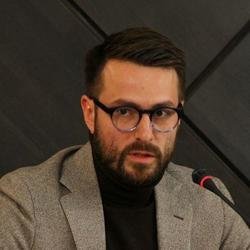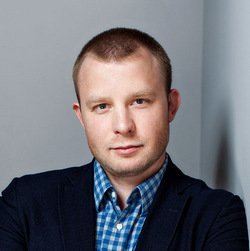Digital dictatorship forever: will coronavirus surveillance of citizens move on in peacetime?
Experts discussed digital control over the compliance with quarantine, transformation of habitual life after the pandemic and help of the IT sphere during the crisis
What technologies are introduced in Russian cities to control how the self-isolation regime is followed? Will QR codes and drone patrol stay with us in peacetime? How have business processes, everyday life and people’s habits changed because of the pandemic? What supporting measures will be taken in the IT sector that has also suffered from the coronavirus? Read the answers to these questions in Realnoe Vremya’s report.
“I will be glad if you manage to do what we haven’t managed to do for many years”
Due to the coronavirus pandemic, INNOPROM international industrial exhibition has launched a project INNOPROM ONLINE where experts hold online conferences. At the next session on 29 April, the introduction of new technologies in Russian cities and the transformation of the habitual life during the quarantine were discussed.
The experts also talked about the problem with support for the IT sector, which has suffered from the pandemic no less than others. It should be noted that the Russian Ministry of Digitalisation sent a set of anti-crisis measures to the government two weeks ago and is now waiting for a decision on the steps offered.

As the speaker specified, these measures are urgent. As for strategic measures, first of all, it is the cancellation of VAT on development and identification of software and databases. According to Parshin, now VAT for developers is almost a turnover tax and the main deterrent, in this respect, we seriously lose same Belarus.
“The second proposal is to reduce income tax: from 20% to 12% with the possibility of making decisions at regional level on its further reduction. We are also offering to apply a concessionary rate of insurance premiums to organisations that provide cloud services, data analysis and machine learning, they are falling out now. Another proposal is the possibility of remote juridical actions. The last thing we are offering is the entrance of communications operators and operators of data processing centre to the wholesale energy market,” the functionary voiced the whole package of measures.
Chairman of Skolkovo fund Arkady Dvorkovich listened to Parshin’s speech and admitted that he was “quite sceptic about the possibility of taking the whole set of measures of the Ministry of Digitalisation”.

“Now legislation allows introducing this digital dictatorship, but it is necessary”
According to the Skolkovo fund chairman, the ongoing things now will suddenly accelerate the development and introduction of new technologies, including linked with the smart city. Vice Government Chairman of Nizhny Novgorod Oblast Oleg Berkovich shared an example of introduction of innovations to urban life at the session:
“First of all, we introduced QR codes, moreover, two weeks earlier than Moscow did. We prepared to launch Citizen Map but had to suspend the project because of the pandemic and launch QR codes on its basis, there have been issued over 5,5 million. We also have a motivation system, we introduced goodrubles. A person is staying home and he is receiving points for self-isolation he then can exchange of discounts in gyms, transport, tickets to theatres and museums. Citizens of Nizhny Novgorod have accumulated about 16 million rubles in total now,” the speaker said.
Apart from this, the administration of Nizhny Novgorod is actively working with mobile operators. So there has been created the population’s mobility index on the basis of telecom companies’ big data: the more connections to different base stations, the more a person’s mobility.

In the speaker’s opinion, most solutions are applicable in peacetime too, QR codes will unlikely be necessary, of course, but goodrubles might stay. At the same time, the work with mobile operators and their big data can help to build the city’s transport model and create public transport routes. According to Berkovich, the facial identification system “should certainly be created without the coronavirus too”.
During the session, precisely after the speech of the representative of Nizhny Novgorod authorities, the organisers conducted a survey: they asked the viewers if they agreed that “every person must become a part of the digital system to collect data”. The opinions split almost in half: 56% voted against, 43% agreed.
“Now legislation allows introducing this digital dictatorship, but it is necessary. If we didn’t arrange self-isolation, by the middle of May medics would have to be choosing whom to save. We couldn’t permit it. People heard us and are calmly using the systems introduced,” Oleg Berkovich commented on the result of the survey.
“It is early to talk about lessons because nothing has ended yet”
The final survey of the session asked the audience a question: “The crisis will end and... The world will never be the same or will everything go full circle?” Here 75% of the viewers voted for the first option. The invited experts agreed with this claim too.

Director General of Centre for Speech Technologies Group of Companies Dmitry Dyrmovsky, in turn, assumed that the pandemic would notably change people’s behaviour, as “we all understood that many things can be done remotely”. In the expert’s opinion, changes will affect the service industry and communications.

Director of Digitalisation at Rosatom Yekaterina Solntseva ended the discussion. She assumed that key changes would happen in the approach to risk evaluation. “Who expected that just three months ago the whole world would turn out in such a situation? All early forecasts collapsed, nobody nailed it,” the expert claimed.